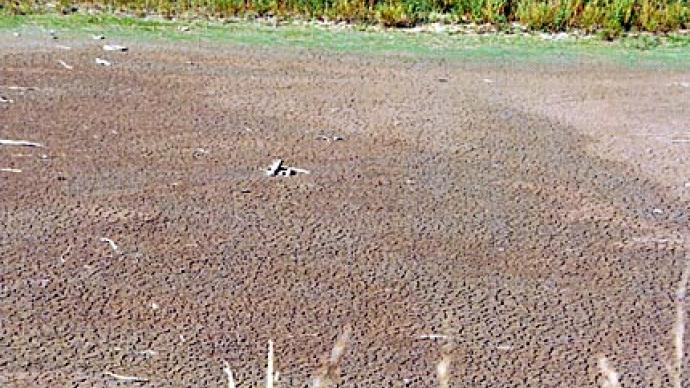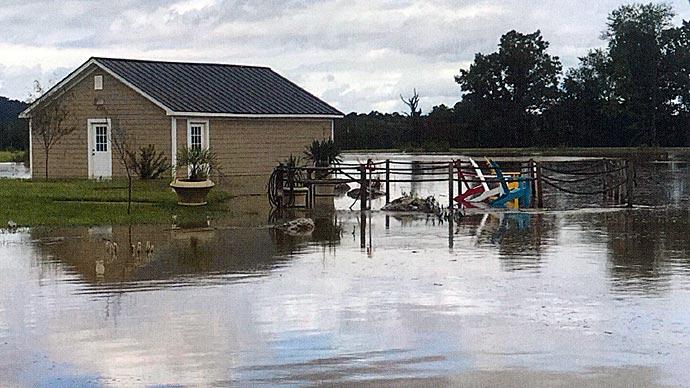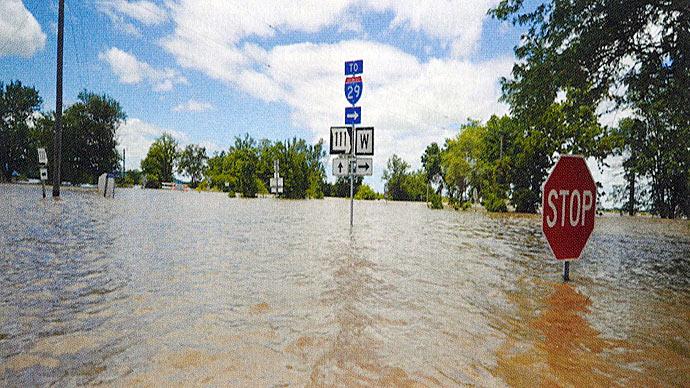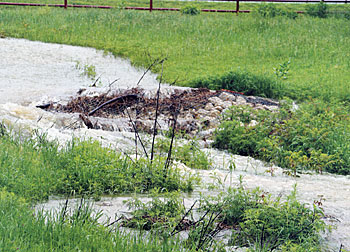
What a year 2015 has been! Odds are high that you've either been flooded or are in the throes of record drought. Either way, what does that do to your pond and its inhabitants?
Folks, I'm in my 36th year as a private sector fisheries biologist, and I've never seen the volume of water flowing in my neck of the woods as we had last May and June. Our average annual rainfall is 32 inches. For three years, 2011-2014, we didn't get too close to that average at all. This year, at LL, 2, we poured 44.25" of rain out of our gauge—and that was over five weeks. We saw water flowing in ways it's never done. Constant overflow of emergency spillways, one rain event right after the other.
Then, there's the western part of the nation. Record drought. They're not even thinking about ponds, other than when to mow the bottom.
What happens to your mini-pond during these natural events?
At world headquarters, we received a dozen phone calls from people whose ponds were at record lows, then the rains came and filled, or rather, over-filled them. A time of rejoicing for these people yielded to concern when they came out and saw their fish piping at the surface and dying. As their ponds dropped due to evaporation, water left. But, what it left behind what the problem. Mineral and metals dissolved in the water stayed behind, and concentrations in remaining water amplified. pH in these ponds rose into the upper 8's. This occurred slowly and fish adjusted as it happened. But, when those big rains hit, stuff dissolved in the water diluted, pH dropped and the fish were shocked. In those dozen cases, it happened so fast the fish couldn't adjust to the new water, and they perished.
The floods brought different issues altogether for small waters. It happened during the peak of sunfish spawning time. Young of the year fish were swept downstream. Had this flood been a singular event, with one massive rainfall, it wouldn't have been a problem. But, with training storms followed by Tropical Storm Bill dumping upward of ten inches in one swoop, not only did some mini-ponds lose their spawns for the entire spring, adult fish became adjusted to the water flow, and some of them bolted, too.
We are in the midst of evaluating quite a few small ponds to figure out the impact.
What should you do?
Don't assume you're not affected if you had big water flow. Verify. Are your fish feeding? Are you seeing any young of the year? What about catch rates? Are you catching fish in similar numbers as years past?
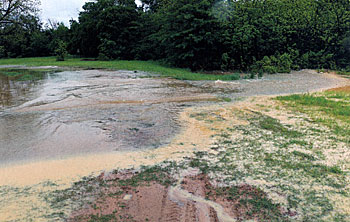
If not, take stock of your inventory by sampling. Set traps, buy a short seine and pull it through the shallows. Go back and read Bill Cody's two part series on sampling and figure out what you've got and where you are. Go fishing, weigh and measure fish. Identify the small ones and see how they fit into your fishery.
Check water chemistry. You need new benchmarks to judge your pond.
Why do this, you might ask?
If you've had major shifts in your fish population, the remaining fish will respond. Not only might you have lost fish downstream, you may have received some fish either up or downstream.
You need to know that.
Here at our place, LL, 2,1 personally watched some of Debbie's favorite koi swim across the road—from the pond where we had them to the swimming pond immediately below. They were in less than six inches of water, and each one weighed more than four pounds. I saw bluegills swimming both directions, not knowing if they were coming or going.
If those koi were to make it into one pond in particular, they would reproduce successfully, and I don't want that. But, where they swam is full of bass and bluegills. Baby koi next spring don't stand a chance. They'll be eaten.
If you've had an introduction of fish you don't want, now is the time to figure it out, not over the Thanksgiving holidays when company wants to go fishing. That's the wrong time to find out your pond has become a turkey.
Mini-ponds can be easy to change. Summer months are the best time to renovate a fishery and start over, if need be. If you figure out your pond's status now, you have several months to remedy it before winter—and you'll be in better shape to begin the spring.
Hopefully, all you lost is the spring spawn. If that's the case you can wait and let the pond correct itself. Or, you can buy some fish this fall to replace those that got away last spring.
Take stock of where you are. Assess the situation, and decide what to do next. Don't be blind-sided next spring because you didn't know.
Those of you in drought circumstances should check your water chemistry and keep track of it. If you are in a severe drought, you may need to amend your water to relieve it of some of its minerals, similar to how you might neutralize swimming pool water. Ask for help.
Those of you who survived the Flood of 2015—who knows, we may be headed for the next drought.
Reprinted with permission from Pond Boss Magazine

